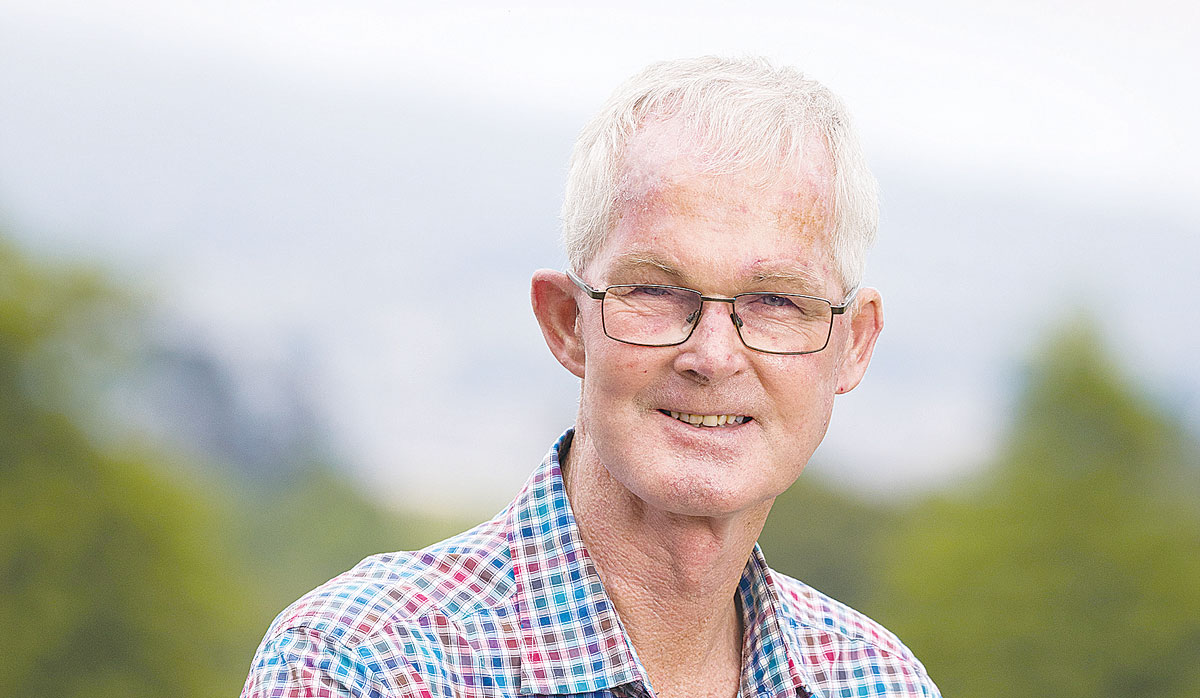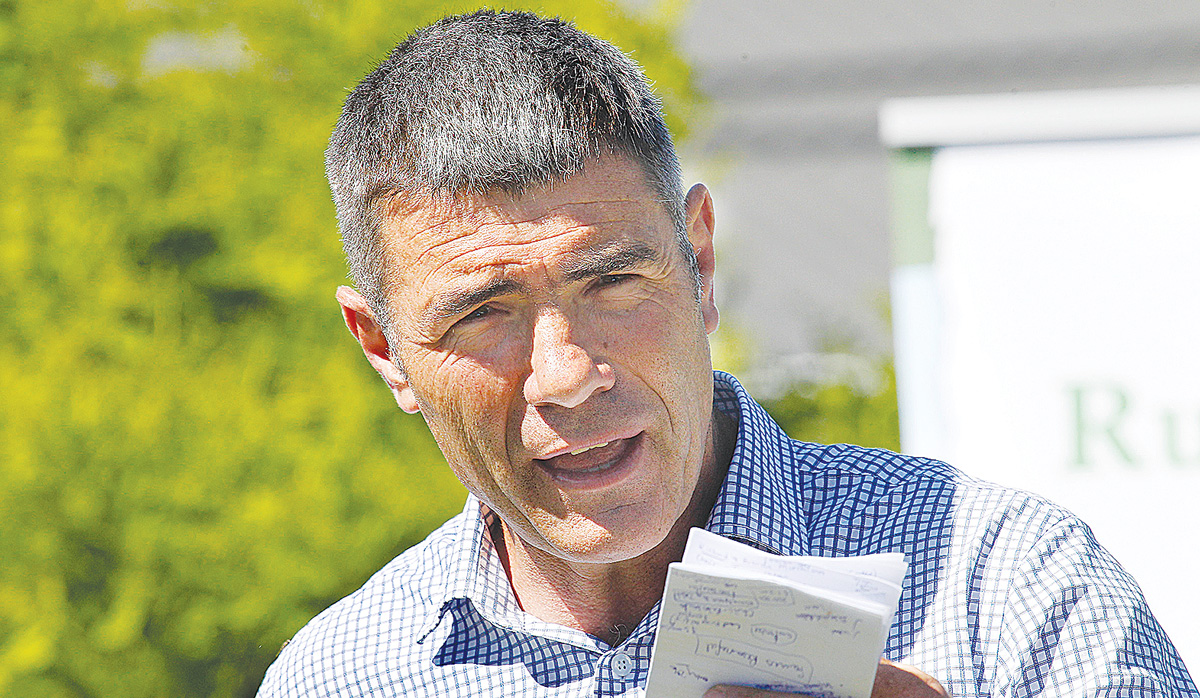State of the Dairy Nation 2024/25: DairyNZ Highlights Record Milk Production and Export Growth
DairyNZ's chief executive Campbell Parker says the 2024/25 dairy season reinforces the importance of the dairy sector to New Zealand.
Federated Farmers president Wayne Langford says the Government’s recently released emissions pricing plan is ‘tone-deaf’.
Earlier today, Agriculture Minister Damien O’Connor announced the final plan for the Government’s emissions pricing plan.
The plan sets out a firm timeline, with mandatory reporting of farm-level emissions starting in the fourth quarter of 2024 and pricing starting in Quarter 4 of 2025.
It will also see scientifically validated sequestration recognised under the New Zealand Emissions Trading Scheme (NZ ETS).
O’Connor says the pricing plan sets out a path that will give farmers certainty and addresses market signals from overseas on climate.
“The reality is, government required or not, our agriculture sector will have to adapt over the coming years and reduce emissions. It’s a fact of business in the 21st Century, but with the support of Government we can make that transition in a pragmatic way with the sector,” O’Connor says.
He says the plan represents a balanced approach to emissions pricing.
“In my meetings with sector leaders, they have reiterated their commitment to taking a collaborative approach on agricultural emissions through the sector partnership He Waka Eke Noa and acknowledge work is needed to meet our climate targets,” he says.
However, Langford and other sector leaders say the announcement comes at the completely wrong time for rural New Zealanders.
“At a time when farmers are struggling to keep their heads above water and are looking for support, they’re instead being weighed down with more uncertainty, complexity, and cost,” Langford says.
"Farmer confidence is at an all-time low, and this announcement is going to do nothing to help restore it. It will only erode it further."
"Federated Farmers agreed to try and work with the Government and other sector partners to develop a plan to reduce emissions in the way that is cost effective and fair for farmers," Langford says.
"The sector presented a credible plan 18 months ago, but we had nothing but radio silence from Government who have now compressed timelines and put themselves under pressure.
"What the Government have come back with is not a plan that’s been designed in partnership with the sector - it’s the Government plan and we have serious concerns about the impact it will have on New Zealand farmers.”
 |
|---|
|
DairyNZ chair Jim van der Poel. |
It’s a sentiment echoed across the sector with DairyNZ chair Jim van der Poel saying the timing shows “little understanding of the challenges dairy farmers are facing this season”.
“Dairy farmers are facing significant pressure right now, with business viability under threat.
“The issue of emissions pricing is of huge importance behind the farm gate, and we all need to keep our farmers top of mind. We will continue to work with government on this to seek a workable solution – no deal is still better than a bad deal," he says.
He says DairyNZ acknowledges the issues the sector raised in December have been considered but today’s announcement lacks the detail the sector needs to provide confidence in the next steps towards implementation. For example, how revenue will be recycled has not been detailed.
“It is also not appropriate to announce emissions pricing without some sort of guide around cost – farmers need to know the detail, to be able to plan.
“Today’s news comes with a dire lack of detail and continues the uncertainty that’s been hanging over farmers since 2018,” van der Poel says.
The red meat sector – which is anticipated to suffer the worst under the Government's plan – is also angered by the announcement.
Beef + Lamb NZ chair Kate Acland says the focus should be on setting up a practical and cost-effective emissions measurement and reporting framework, and ensuring problems like sequestration are resolved and there are viable mitigation tools available, before pricing is considered.
“There is no sound rationale for pricing when the sector is making good progress towards meeting emissions reduction targets,” Acland says.
“Our sheep and beef farmers are among the most efficient producers in the world. They’ve been reducing emissions by 1 percent annually for the last 30 years so this policy will simply drive down our production and result in other less efficient countries taking our place and pushing up global emissions.
“New Zealand is the first country in the world to seek to price agricultural emissions and there is no blueprint to copy,” she says.
“Given that our economy is built around the production and export of food, it is essential we take the time to get this right. Proposing another unjustified cost on the sector when farmers have their backs to wall financially will only hurt rural communities and the economy.”
 |
|---|
|
Meat Industry Association chair Nathan Guy. |
Nathan Guy, chair of the Meat Industry Association (MIA) and former Minister of Primary Industries, says the sector is committed to playing its part in producing sustainable and nutritious food.
“Although the Government has moved on from the blunt processor levy, the fact that it has taken such a long time to reach a decision that doesn’t meaningfully advance critical issues such as sequestration and viable mitigation tools is extremely disappointing - especially as the ball has been squarely in their court since November last year,” he says.
“New Zealanders can and should be proud of our red meat sector. We not only have one of the lowest carbon footprints in the world, but we are also an economic powerhouse supporting almost 100,000 jobs. Unfortunately, that’s not the message Kiwis will be hearing from today’s announcement.”
The Meat Industry Association of New Zealand (MIA) today announced that Chief Executive Officer Sirma Karapeeva has resigned from the role.
The winners of the 2026 Hawke’s Bay/Wairarapa Dairy Industry Awards were announced at the annual awards dinner held at Copthorne Solway Park in Masterton on Thursday evening.
Environment Southland is welcoming this week’s decision by the Environmental Protection Authority (EPA) to approve the release of Blaptea elguetai, a leaf‑feeding beetle that will help control the highly invasive Chilean flame creeper.
This March, the potato industry is proudly celebrating International Women’s Day on 8 March alongside the International Year of the Woman Farmer, recognising the vital role women play across every part of the sector — from paddocks and packhouses to research, leadership, and innovation.
Fruit trader Seeka posted a record profit and returns to shareholders in 2025.
Recent weather events in the Bay of Plenty, Gisborne/Tairawhiti, and Canterbury have been declared a medium-scale adverse event.

OPINION: A mate of yours truly reckons rural Manawatu families are the latest to suffer under what he calls the…
OPINION: If old Winston Peters thinks building trade relations with new nations, such as India, isn't a necessary investment in…